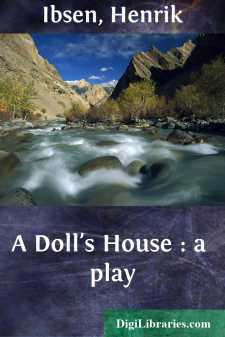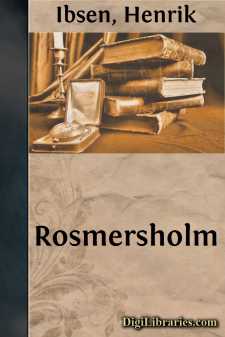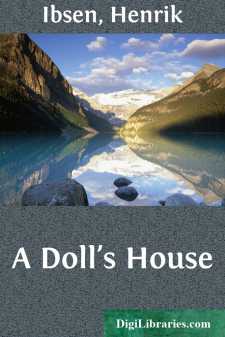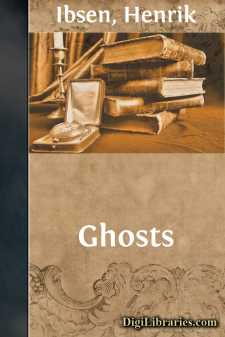Categories
- Antiques & Collectibles 13
- Architecture 36
- Art 48
- Bibles 22
- Biography & Autobiography 813
- Body, Mind & Spirit 142
- Business & Economics 28
- Children's Books 17
- Children's Fiction 14
- Computers 4
- Cooking 94
- Crafts & Hobbies 4
- Drama 346
- Education 46
- Family & Relationships 57
- Fiction 11829
- Games 19
- Gardening 17
- Health & Fitness 34
- History 1377
- House & Home 1
- Humor 147
- Juvenile Fiction 1873
- Juvenile Nonfiction 202
- Language Arts & Disciplines 88
- Law 16
- Literary Collections 686
- Literary Criticism 179
- Mathematics 13
- Medical 41
- Music 40
- Nature 179
- Non-Classifiable 1768
- Performing Arts 7
- Periodicals 1453
- Philosophy 64
- Photography 2
- Poetry 896
- Political Science 203
- Psychology 42
- Reference 154
- Religion 513
- Science 126
- Self-Help 84
- Social Science 81
- Sports & Recreation 34
- Study Aids 3
- Technology & Engineering 59
- Transportation 23
- Travel 463
- True Crime 29
Henrik Ibsen
Henrik Ibsen was a Norwegian playwright and poet, widely regarded as the father of modern drama. His plays, including "A Doll's House" and "Hedda Gabler," are known for their critical examination of societal norms and the human condition, often addressing controversial issues such as women's rights and individual freedom. Ibsen's innovative approach to realism and his exploration of psychological conflicts had a profound influence on the development of modern theater.
Author's Books:
Sort by:
by:
Henrik Ibsen
ACT I [SCENE.--A room furnished comfortably and tastefully, but not extravagantly. At the back, a door to the right leads to the entrance-hall, another to the left leads to Helmer's study. Between the doors stands a piano. In the middle of the left-hand wall is a door, and beyond it a window. Near the window are a round table, arm-chairs and a small sofa. In the right-hand wall, at the farther...
more...
by:
Henrik Ibsen
ACT I. (SCENE.--A spacious garden-room in the BERNICKS' house. In the foreground on the left is a door leading to BERNICK'S business room; farther back in the same wall, a similar door. In the middle of the opposite wall is a large entrance-door, which leads to the street. The wall in the background is almost wholly composed of plate-glass; a door in it opens upon a broad flight of steps...
more...
by:
Henrik Ibsen
ACT 1 (SCENE—The sitting-room at Rosmersholm; a spacious room, comfortably furnished in old-fashioned style. In the foreground, against the right-hand wall, is a stove decorated with sprigs of fresh birch and wild flowers. Farther back, a door. In the back wall folding doors leading into the entrance hall. In the left-hand wall a window, in front of which is a stand filled with flowers and plants....
more...
by:
Henrik Ibsen
ACT FIRST. (A room at Ostrat. Through an open door in the back, the Banquet Hall is seen in faint moonlight, which shines fitfully through a deep bow-window in the opposite wall. To the right, an entrance- door; further forward, a curtained window. On the left, a door leading to the inner rooms; further forward a large, open fireplace, which casts a glow over the room. It is a stormy evening.) (BIORN...
more...
by:
Henrik Ibsen
PLAY IN FOUR ACTS. ACT FIRST. (A rocky coast, running precipitously down to the sea at the back. To the left, a boat-house; to the right, rocks and pine-woods. The masts of two war-ships can be seen down in the cove. Far out to the right, the ocean, dotted with reefs and rocky islands; the sea is running high; it is a stormy snow-grey winter day.) (SIGURD comes up from the ships; he is clad in a white...
more...
by:
Henrik Ibsen
ACT I (SCENE.—DR. STOCKMANN'S sitting-room. It is evening. The room is plainly but neatly appointed and furnished. In the right-hand wall are two doors; the farther leads out to the hall, the nearer to the doctor's study. In the left-hand wall, opposite the door leading to the hall, is a door leading to the other rooms occupied by the family. In the middle of the same wall stands the stove,...
more...
by:
Henrik Ibsen
INTRODUCTION One of the most remarkable facts about Ibsen is the orderly development of his genius. He himself repeatedly maintained that his dramas were not mere isolated accidents. In the foreword to the readers in the popular edition of 1898 he urges the public to read his dramas in the same order in which he had written them, deplores the fact that his earlier works are less known and less...
more...
by:
Henrik Ibsen
A DOLL'S HOUSE ACT I (SCENE.—A room furnished comfortably and tastefully, but not extravagantly. At the back, a door to the right leads to the entrance-hall, another to the left leads to Helmer's study. Between the doors stands a piano. In the middle of the left-hand wall is a door, and beyond it a window. Near the window are a round table, armchairs and a small sofa. In the right-hand...
more...
by:
Henrik Ibsen
ACT I (SCENE.—A large room looking upon a garden door in the left-hand wall, and two in the right. In the middle of the room, a round table with chairs set about it, and books, magazines and newspapers upon it. In the foreground on the left, a window, by which is a small sofa with a work-table in front of it. At the back the room opens into a conservatory rather smaller than the room. From the...
more...










